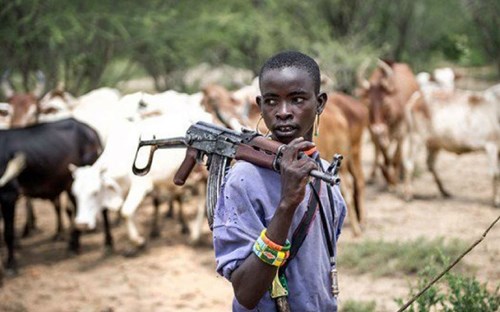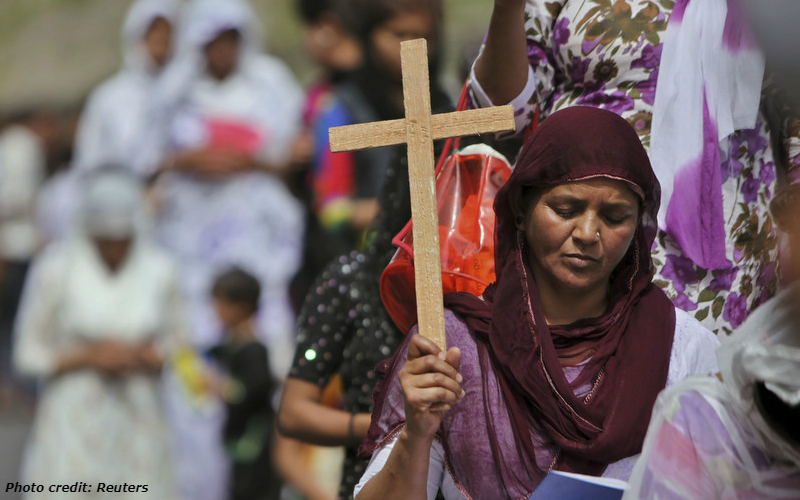Islamic Jihadists in Nigeria killed more than 8,000 Christians last year, according to a report by the watchdog group International Society for Civil Liberties and Rule of Law. It’s a record number in a country with a long history of persecution of believers.
Violence against Christians in Nigeria goes back to 2009 and Boko Haram, a Nigerian jihadist terror organization. That year it began its series of attacks that have now claimed the lives of more than 150,000 Christians, according to The Family Research Council.
Millions more Christians have fled the region.
It’s a different type of persecution in Nicaragua, the small Caribbean nation. Christians appeared welcome there as revival was sweeping the country. Mass evangelism crusades drew hundreds of thousands in response.
Now three U.S. citizens serving as missionaries through the organization Mountain Gateway, and 11 Nicaraguan pastors, face charges from the government of money laundering and organized crime. The 11 pastors have been jailed.
“Scripture says when the wicked are ruling people mourn," Pastor Carter Conlon, the general overseer of Times Square Church, said on Washington Watch Monday. "There’s a huge difference when the righteous are in authority. We need to pray for a spiritual awakening in this nation. We need to pray for God to give us leadership in the church and in the nation that will bring his name to honor one more time. I fully believe that’s possible."
Nigeria has a population of more than 2.2 million. Four years ago there was an even split between Christians and Muslims. Now, with no protection from President Bola Ahmed Tinubu’s government, the remaining Christians face danger from Muslim extremists.
The U.S., under President Donald Trump, designated Nigeria as country of particular concern as the President is required to review annually the status of religious freedom in every country in the world. The unfavorable designation meant economic sanctions for Nigeria. That got the attention of the government there for a time, but Joe Biden removed Nigeria from the watch list.
Similarities in Nigeria and the U.S.
“You see what's happening in Nigeria is they realized a little bit too late that they’d been behind the eight ball in their dedication to Godliness, to the message of the word of God. They let it slip from their fingers, just like we did in America.
“Now they're paying the price for it. Now they have leadership that's indifferent to their plight. Islam is being forcefully implemented in some parts of the country and is starting to infiltrate almost every area of government in the nation. It really is a perilous time for Nigeria, and I believe it's also a perilous time for us here in the United States,” Conlon told show host Tony Perkins.
For the Nicaraguans, persecution is different but no less real.
Texas-based Mountain Gateway, which seeks to disciple national leaders and train pastors in unchurched countries, denied the allegations in a statement in mid-January.
 As Britt Hancock, the founder and director of Mountain Gateway, lobbies Congress to pressure the Nicaraguan government, he’s learned from the State Department that as many as 100 other evangelical pastors could be held for similar reasons in Nicaragua right now.
As Britt Hancock, the founder and director of Mountain Gateway, lobbies Congress to pressure the Nicaraguan government, he’s learned from the State Department that as many as 100 other evangelical pastors could be held for similar reasons in Nicaragua right now.
“We’ve been having lots of meetings in the halls of Congress with members of both the House of Representatives and the Senate. Things are moving along. We have a growing coalition of people that are concerned about the religious freedom, religious persecution issues, and the human rights violation issues that are happening in Nicaragua with our people specifically,” Hancock told Perkins.
Hancock and his team are concerned about the imprisoned Nicaraguan pastors since Mountain Gateway representatives are allowed very little access to the pastors.
“We can't verify really their health condition. There have been two hearings where our legal representatives down there, our lawyers, have seen them by video, but there’s been no way to communicate with them. The lawyer has seen them on a video screen. They can hear her but she can't hear them. It’s very concerning because it's kind of reduced to sign language to sort of figure out how they're doing,” Hancock said.
Among the imprisoned is a married couple that is now separated from two children, ages four and two.
Hoping U.S. pressure will help in Nicaragua
The Alabama delegation from the U.S. House composed a letter expressing concern about such rights violations to the Nicaraguan ambassador. It was signed by 58 members of Congress crossing both sides of the aisle.
Rep. Bruce Westerman (R-Arkansas) has condemned the actions of the Nicaraguan government from the floor of the U.S. House.
“There’s a resolution making its way through Congress that we hope to pass. It condemns pretty strongly Nicaragua’s behavior,” Hancock said.
Hancock asks that people pray but also contact their representatives and senators and urge them to take action.
“The activity of the (Nicaraguan) government is getting more and more repressive,” Hancock said.














